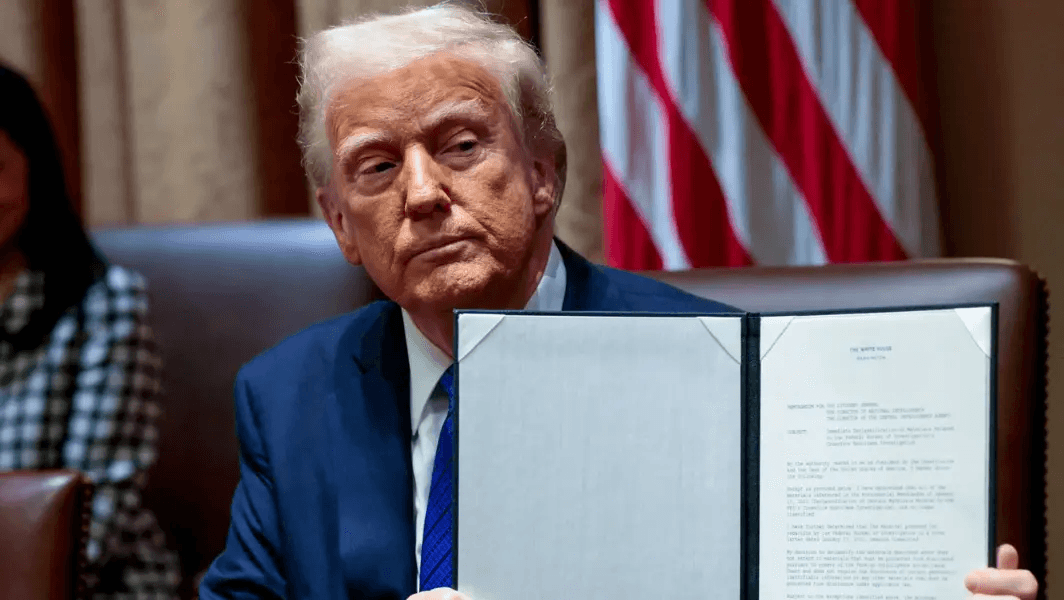
Trump Signs Executive Order to Tighten U.S. Election Rules
New Measures Demand Proof of U.S. Citizenship and Set Ballot Submission Deadline
In a move to reform U.S. elections ahead of the 2026 midterms, President Donald Trump has signed a new executive order titled "Preserving and Protecting the Integrity of American Elections." The executive order introduces stringent new requirements aimed at tightening voter eligibility and standardizing voting procedures.
Key Aspects of the Executive Order:
Proof of U.S. Citizenship Requirement
The new order mandates that all voters provide proof of U.S. citizenship before they can cast a ballot. Acceptable forms of proof include documents such as U.S. passports or birth certificates. This measure is intended to prevent non-citizens from participating in federal elections, a claim that Trump has frequently raised despite the lack of evidence for widespread voter fraud.
Federal agencies, including the Department of Homeland Security, will be tasked with helping state officials identify non-citizens on voter rolls. However, the requirement has sparked concerns about its potential to disenfranchise eligible voters, particularly those who may not have easy access to official documents such as passports. Critics argue that the new rule could prevent millions of eligible voters from registering, especially those who do not have a passport or those who have changed their names after marriage.
Ballot Submission Deadline
The executive order also establishes a clear deadline for mail-in ballots. Under the new rules, all mail ballots must be received by Election Day to be counted. This change is designed to streamline voting procedures across states, ensuring that no ballots are counted if they arrive after Election Day. Currently, some states, such as California, allow ballots to be counted up to several days after Election Day, provided they are postmarked by the deadline.
This provision could place significant pressure on states that currently allow extended ballot submission times, especially in battleground states where late-arriving ballots often play a crucial role in determining election outcomes.
Federal Funding and Compliance
States that fail to comply with the new election rules risk losing federal election funding. The executive order includes provisions that require the Department of Justice to take action against states that continue to count ballots received after Election Day. Federal election funding will be contingent on compliance with the new regulations, which could have significant financial implications for states with more flexible voting procedures.
This change could also affect how elections are financed at various levels, with states potentially facing financial strain if they do not align with the new rules.
Data Sharing and Voter Registration Review
The executive order directs the Secretary of Homeland Security to ensure that states have the tools needed to verify the citizenship status of individuals registering to vote. This includes providing access to systems that can cross-check voter registration information and, if necessary, issuing subpoenas to ensure compliance with federal standards.
The new order also calls for a review of state voter registration lists, with the potential use of subpoenas to identify and remove any discrepancies, particularly those related to non-citizens or inaccurate information.
Legal Challenges and Reactions
This executive order is likely to face legal challenges, particularly from states that view it as an overreach of federal authority. Arizona’s Secretary of State and Attorney General have already indicated their intentions to challenge the order, arguing that it undermines states' constitutional authority over elections. Critics suggest that the new rules may be part of a broader strategy to sow doubt in the legitimacy of election outcomes.
While the order has received support from conservative groups such as the Heritage Foundation, who argue that it is necessary to protect election integrity, opponents claim that it could create unnecessary barriers for voters and potentially lead to the disenfranchisement of millions.
For any enquiries or information, contact info@thelawreporters.com or call us on +971 52 644 3004. Follow The Law Reporters on WhatsApp Channels